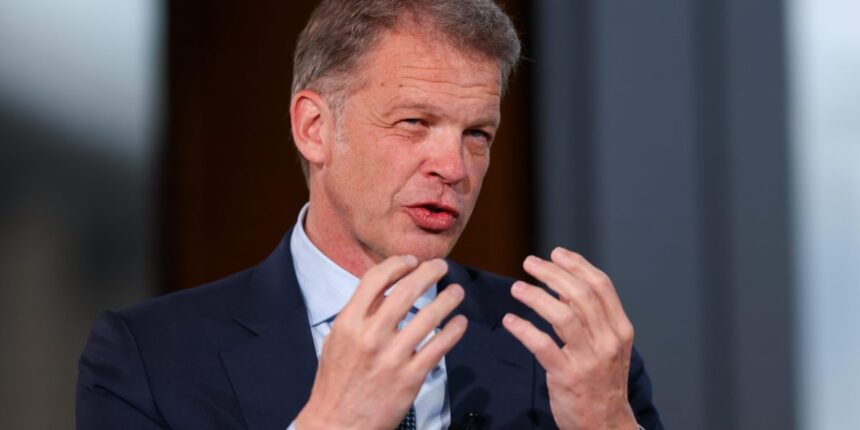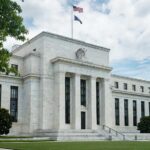
Germany was the trading hotspot of the world not too long ago. But it’s recently become the worst-performing major developed economies on the planet. International organizations have predicted that the German economy will shrink this year, prompting debates about whether the country’s ailing economy would bring down the rest of Europe.
But the chief of Germany’s leading bank thinks the country hasn’t reached that point yet—although it risks going down that path.
“We are not the sick man of Europe,” Deutsche Bank CEO Christian Sewing said in his keynote address at the Handelsblatt Banking Summit 2023 on Wednesday, according to a transcript viewed by Fortune.
“But it is also true that there are structural weaknesses that hold back our economy and prevent it from developing its great potential.”
Germany is facing a cocktail of problems—its manufacturing sector, which has historically been a key piece of its economy, has been on the decline amid slow global demand and a COVID-19 hangover of supply chain disruptions. Its growth stagnated earlier this year, falling short on expectations of modest growth amid recession woes. And rising costs and stronger competition are plaguing key industries like automobiles.
Just looking inside the country, Deutsche Bank’s Sewing pointed out that issues such as volatile energy costs, shortage of skilled workers, outdated rail networks and bureaucracy have added to Germany’s long list of hurdles.
“We will become the sick man of Europe if we do not address these structural issues now,” Sewing said. “Something urgently needs to change here.”
The phrase “sick man of Europe” was first used by economist Holger Schmieding to describe Germany in 1998, when it was navigating challenges associated with its post-reunification economy. It saw a period of slow economic growth and faced the uphill task of making the country competitive globally.
But a lot has changed since—the country is in a much stronger position today than it was a few decades ago with relatively low unemployment rates and better public finances—and that could help the country bounce back from economic shocks. Germany has also proved its ability to adapt quickly in times of crises—for instance, it built an LNG plant last year to cut its dependence on Russian energy supplies, despite dire forecasts of a possible energy meltdown in Germany.
Bringing change to Germany (and Europe)
While the country has come a long way, earning the moniker of an “economic superstar,” the COVID-19 pandemic and the ripple effects that followed have complicated Germany’s challenges.
In Sewing’s opinion, there are three things that need to be done so the country forges a different path forward. First, Germany needs to shift from its “paralyzing aversion to change” which set in after its growth spurt in the mid-2000s.
“The success of the 2010s made us too comfortable. For too long, we got the idea that the economy will continue to run itself and that we don’t have to do much to succeed,” Sewing said.
Second, the Deutsche Bank chief said Europe should work together in effecting reforms as a way to “de-risk” amid the new world order. And third, he highlighted the need for a competitive financial center in Europe that doesn’t rely on any country outside the region.
“Last year, we learned a bitter lesson about how wrong it was to rely exclusively on a single, non-European supplier for natural gas,” Sewing said during his speech at the banking conference. “We must not repeat this mistake in the financial sector—even if we are talking about dependence on an ally like the United States.”
He added that the biggest part of achieving such changes came down to banks, including his own, as financial institutions are seeing heightened demand for risk managers and advisers.
“This is a great responsibility, but also a great opportunity to create new trust,” Sewing said. “We have restructured ourselves and brought ourselves into a robust condition in order to be fully there for our clients in difficult times.”
Deutsche Bank recently completed a restructuring plan, begun in 2019, that saw it improve profitability and rein in costs. And despite seeing rising costs in recent times owing to inflation and an IT overhaul, the group has generally remained confident about its ability to generate positive results in the months ahead.
Deutsche Bank declined Fortune‘s request for further comment.








